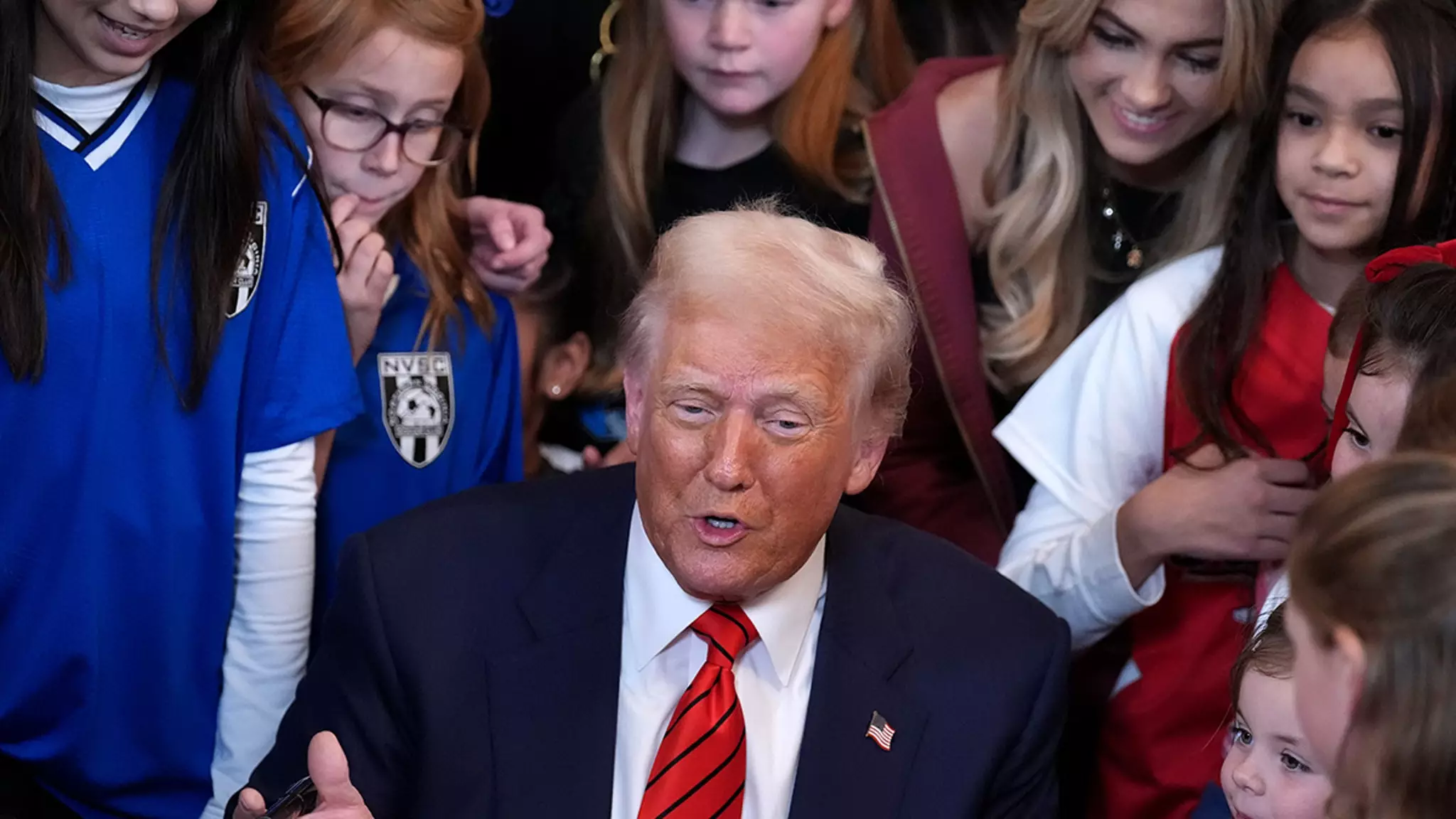The tension surrounding the participation of transgender athletes in women’s sports has reached a new pinnacle with the recent actions taken by former President Donald Trump. With a fervent signing of the executive order dubbed the “Keeping Men Out of Women’s Sports” mandate, Trump has ignited further debate within an already polarized landscape. This move is viewed by supporters as a protective measure for women’s sports, while critics argue it introduces discrimination and undermines inclusivity.
At a White House ceremony, Trump made a stirring declaration, assuring his supporters that the era of biological males competing against females is coming to an abrupt end. His remarks highlighted a paternalistic perspective, suggesting that allowing transgender women to compete against cisgender women constitutes an unfair advantage. The order is designed to empower the Education Department with the potential to withdraw federal funding from educational institutions allowing transgender competitors in female categories. By asserting control over funding policies, the executive order elevates the stakes for schools, compelling them to confront the ramifications of their athletic inclusion policies.
Trump’s announcement not only addresses local school sports but also stretches to the international stage, particularly looking toward the 2028 Olympic Games in Los Angeles. His directive to Homeland Security aims to mitigate what he describes as fraudulent attempts by male athletes to compete as women. This robust stance reflects a broader ideological battle surrounding gender identity in sports, where issues of fairness, identity, and equality intersect in complex ways.
The applause from his audience—including notable figures opposed to transgender participation—signals a rallying point for a faction that perceives this issue through a lens of protectionism. The stark divisiveness of this legislative push is exhibited in the contrasting reactions, with activists and organizations denouncing the potential for increased harassment and discrimination against transgender athletes.
Kelley Robinson, the president of the Human Rights Campaign, condemned the order, articulating concerns that this move could contribute to a hostile environment for young athletes. The assertion that sports foster values like teamwork and perseverance adds significant weight to the argument for inclusivity. For many, sports serve as a sanctuary, a platform for learning critical social skills that transcend the mere competitive aspect. By restricting participation, critics argue that the order compromises the fundamental principles of sportsmanship and camaraderie.
As this executive order sets a precedent, the implications are far-reaching both within the confines of sports and in society at large. The uproar surrounding this issue demonstrates a fracture within American societal values regarding gender, identity, and fairness. The challenge ahead will be navigating these complex discussions, ensuring equity and respect for all athletes involved, while balancing concerns over competitive integrity. As the national conversation evolves, the importance of a nuanced approach to policy-making will become increasingly paramount in addressing the needs of diverse athletes.

